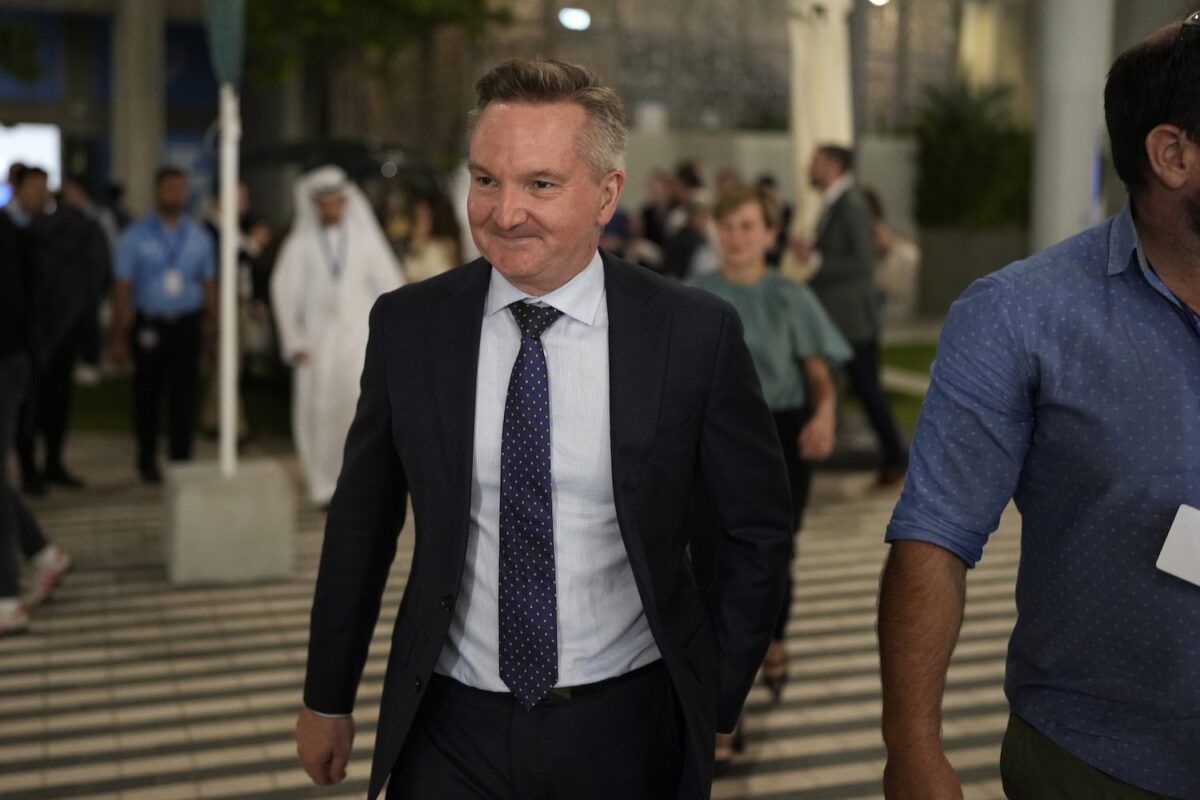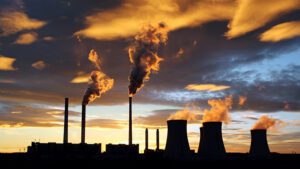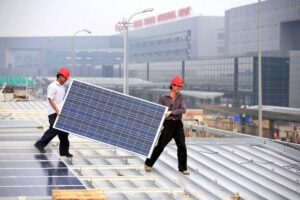A glass half full, or a glass half empty: Opinion is divided about the outcome of the COP28 climate talks in the United Arab Emirates.
Typically, the COP achieved just enough to continue the process and to hold out the tiniest sliver of hope that the 1.5°C climate target might just be achieved. But scientists and activists argue that it does not do nearly enough to prevent a climate catastrophe.
For many, however, it is a landmark deal, committing to a trebling of renewable energy across the world by 2030 and flagging, for the first time, the necessary transition away from fossil fuels. They say this is the most that could be expected given the complexity of trying to get nearly 200 nations to agree.
“This COP is a turning point, not an end point,” Australia’s climate and energy minister Chris Bowen told journalists after the final text was gavelled through by the UAE host.
“This is the first time that fossil fuels have ever been mentioned in a COP decision. And that COP decision is that we will transition away from fossil fuels. That is no small thing. It sends a signal to the world’s markets, investors and businesses that this is the direction of travel for countries right around the world.”
Asked if it really did signify the death of fossil fuels, given the loose language and caveats in the text, particularly around the focus on carbon capture and storage and “unbated” fossil fuels, and the message for Australia’s big fossil fuel producers, Bowen said:
“Read the text … the decision of the world is very clear here,” Bowen said.
“And Australia, as you know, wants to be a renewable energy powerhouse, we want to create the energy for ourselves and for our region and for the world. And that means thousands of good well paying jobs in Australia’s regions. And the COP decision today gives us a very good ecosystem which to develop that plan.”
Bowen said that if Australia reaches its 82 per cent target by 2030 – and there is doubt that it can do that even with his expanded Capacity Investment Scheme – some gas capacity will remain in the system, to fill in the gaps. But he insists that that capacity will not be used often.
“We (are) going to 82% renewables, that still means 18% fossil fuels in the grid by 2030. The virtue of gas is that it can turn on and off real quickly,” Bowen said.
“I know that people say correctly, that, you know, gas still has emissions, absolutely it does, I’ll tell you what it doesn’t have emissions when it’s not switched on. And if you’ve got gas fired peakers backing up your 82% renewable system that are only turned on rarely.
“That is a big step forward for emissions reduction, a big step forward. So gas does have a role to play as we get to that 82% renewable that’s reflected in our domestic position. And it’s reflected in the global decision as well.”
But Bowen also conceded that the world “has left it too late to stop climate change in its tracks” and that it needs to learn to adapt as well as mitigate.
And that is the source of frustration for vulnerable countries, particularly the small island states, and climate scientists and activists, who point out that the window for capping average global warming is closing rapidly, and given the many potential tipping points, may already be lost.
“Loop holes and false solutions can only serve to delay their inevitable demise, yet it’s clear from the text – which is strongly committed to the 1.5°C warming limit – that there’s not time to lose,” said Bill Hare, the Australian-based CEO of Climate Analytics.
“The energy section is weak and simply doesn’t have enough hard commitments to bring the 1.5˚C warming limit within reach this decade, and there’s no commitment to peak emissions by 2025. The goal of tripling renewables and doubling of efficiency is very welcome, but will need hard work to implement.”
“The agreement opens the doors to false solutions like carbon capture and storage at scale, and the reference to transition fuels is code for gas, which is absolutely not a transitional fuel. This has been promoted by LNG and fossil gas exporters.”
Climate Council Senior Researcher Dr Wesley Morgan said every step taken to cut pollution across electricity, transport and industry will helps secure a safe future.
“The science has been clear for some time – we need to stop pollution at its source,” he said in a statement.
“Australia remains the world’s third-largest fossil fuel exporter – exporting nearly three times the fossil fuels that talk hosts the United Arab Emirates does – and has dozens of new coal, oil and gas projects in the approvals pipeline.”
The Clean Energy Council said the COP agreement showed the world recognised that renewables were the most cost effective and impactful solution.
“This is a watershed moment in Australia’s journey to becoming a global clean energy superpower, particularly given that investors have long sought greater certainty about the timeframes for the closure of coal-fired power stations, and their replacement with renewable generation and storage,” CEO Kane Thornton said.
Others warned about Australia’s gas projects, which were still being based on the “fiction” of CCS technology.
“Science has shown that CCS technology has failed to solve the fundamental problem of fossil fuel production that even if CO2 is captured at source of production it cannot be collected and stored from billions of users,” said Peter Newman, professor of sustainability at Curtin University.
“In Australia we must now reject the North West Shelf Project Extension to produce more LNG beyond 2070. The NWS growth projection is based entirely on CCS – all credibility around this reliance on CCS must now be rejected or agencies and governments will be showing their ignorance of this globally accepted fact.”










